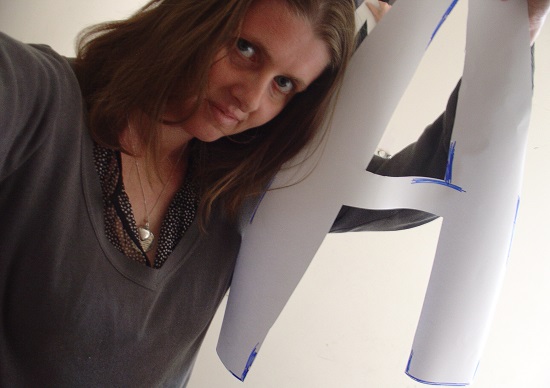Most kitchens will have a microwave oven and until it goes wrong you don’t realise how much you come to depend on it for heating drinks, meals, cooking vegetables, jacket potatoes, defrosting etc. How much do you use yours? How much do you know about what it does to your living environment and the food you eat?
Is my microwave oven killing me?
Just google, ‘my microwave oven is killing me’ and you’ll find a huge plethora of articles and studies that would like you to believe it’s bad for you. But are they just scare mongering? You can read views of scientists who believe microwave ovens can cause cancer, brain damage and even death. If blood is warmed in a microwave before being transfused it can kill the person. A 1991 lawsuit in Oklahoma concerned the hospital use of a microwave oven to warm blood needed in a transfusion. Norma Levitt, who was having a hip operation died! Consequently blood is never warmed in a microwave in hospitals since it changes the blood so much it becomes dangerous to the human body.
Further reading can be found on the Foods Matter website (not to be confused with Food Matters) at: http://www.foodsmatter.com.
The link between microwaves and cancer
Here you can read more about research links between microwave cooking and cancer, the downsides of cooking with microwaves and the dangers of microwave cooking. People with electical sensitivity can also be affected by microwave ovens – the radiation emitted during use can spread quite a distance into the room, it’s not all contained inside the little metal box as you might assume.
“What the doctor’s don’t tell you about microwave ovens” is another shocking website which details the work of Dr Hans-Urich Hertel in Switzerland whose research proved that food heated, cooked or defrosted in a microwave oven can cause changes in the blood indicative of a developing pathological process that is also found in cancer. Keep reading and you’ll be having nightmares!
Can you heat up left overs without a microwave?
During our recent house renovations the microwave oven gave up the ghost. We suspected the builders had dropped it but it turned out to have quietly blown and fuse and the wiring had gone phutt too, so it went off to be fixed. Finding myself with no means of heating up left-overs I did some research into how this could be done – I was sure people managed to heat up plated meals before microwave ovens came along.
Organisation is the key here. An hour before I wanted to eat I filled a saucepan with water, brought it to the boil, placed my plated meal (sausages, mash, cauliflower and carrots) on top of the pan like a lid and then put a large bowl face down so it covered the meal like a dome. I went back to work and checked on it periodically until, after about 30-40 minutes it was piping hot.
Do microwaves really heat up meals well?
Now this clearly wouldn’t fit into my usual rushing about regime, always wanting to heat something quickly, but it has made my question my previous reliance on our microwave oven. Since my experiment Molly the Microwave has returned with a new wire and fuse and is back to her normal radiating self. I have to admit to giving in yesterday evening when I only had twenty minutes to wolf down some food. Molly was just sitting in the corner quietly winking at me. I did heat up left over stir fry – but it didn’t taste half as nice as my steamed meal of earlier in the week. The chicken had begun to dry up, the food was just too hot, unnaturally and dangerously hot and it wasn’t as tasty as the original meal.
Can you use microwaves safely?
So what’s the verdict? Should we ditch our microwave ovens? Can we use them but still stay safe? I do have a few microwave and stay safe tips:
- Don’t use plastic – even if it says it’s microwavable. Always put meals onto plates or into glass bowls to heat.
- Don’t stand next to the microwave whilst it’s in operation as it emits harmful rays into your house. The further away you can stand the better.
- Don’t use cling film – instead place a bowl or plate over the food to stop it drying out or spitting.
Do you use a microwave oven?
So finally, whilst I have discovered that I can cope without the microwave (albeit only for a week), my research also led me to find out far more than I’d bargained for. Cooking when you have allergies is a constant chore and battle sometimes, so we often cook extra and freeze or keep it for another meal. It then provides a fast ‘ready meal’ that can be just popped into the microwave, but one which is home-cooked and allergy-free. Do you use a microwave? Do you rely on yours to? Do you think they’re dangerous? Or is this just a load of old hog wash? I think I will definitely watch how much I use the microwave from now on, and try to limit or even cut out use if I can.
In the back of my mind now as I sign off from another blog post is the smell of Cake-in-a-mug! My amazing 3 minute cake that can be made in the microwave. Oh I’m so weak! Mention cake and I’m relenting on my firm plans to ignore Molly already!
For a recipe for Cake-in-a-mug read “A twist on gluten free cake-in-a-mug – mesquite flour!”











When cooking I never reheat food or cook food in a microwave, i used to, but i have weaned off it during the last year. I don’t even use a kettle for boiling water, just a saucepan…
Alot of it is how we live in our lives and especially how we prepare and cook food.
I love to cook food everyday alot i find it therapeutic and relaxing, when eating out, restaurants 90% of the time cannot prepare for Vegans, and most sway for Vegetarian options, but it always contains dairy which I react too so makes the option redundant.
I always try to get as much fresh food as possible, and prepare it, store it and come up with recipes by chance and by being creative make my food great.
So are microwaves dangerous, many studies state many different things, all down to personal choice, mine is i reheat food in a pan, and so on, and it tastes better anyway.
Hi Richard! Thanks for the comment. I agree, stuff definitely tastes better if made fresh. Microwave ovens do kind of kill off the taste in some foods. You just have to be prepared, and take food out of the freezer the night before and put it in the fridge to defrost slowly, or like you say, cook from scratch and reheat in the pan. Which leads onto my next question – what type of pans are best? What are these non stick pans made of and is that good for us?
Don Sawyer; I have often wondered about some of these things. The taste is definiotly not so good as properly prepared foods. But one big factor in its favour is the cost. How much does it cost to heat a pan on the the gas or electric hob compared to using the m.w? I reckon the stand clear idea is good I will just have tio make sure the timiing is right or I will some overflowing drinks. Have you any idea what it does to milk ? Thanks
Hey Dad – If you went back to your dining table and read the paper you’d be far enough away not to nuked but close enough to leap into action should the milk rise faster than planned! I should imagine having a pan of water boiling on the hob to warm a plated meal takes up far more energy then the microwave. However, heating cold soup or leftovers ‘in’ a pan shouldn’t use that much more – the taste benefit probably out weighs any cost savings. Just compare porridge done in the microwave to proper simmered in the pan stuff. No contest. And ever tried to cook scrambled egg in the microwave? It turns all rubbery and horrible.
I read that Swiss research many years ago, and with other stuff since, I always advise patients to ditch the microwave and get another fridge! A good, healthy decision. I have an extremely busy life, have to cook everything myself and have never missed having a microwave once so living proof it can be done. Be strong!
Thanks Micki. Not used it since writing this post. Honest! I really do prefer to cook from fresh. I wonder if you know whether microwaves that also claim to grill are safe when using that method? and only emit harmful rays whilst actually microwaving?
I also advise caution. I assume that is OK but one never knows! Could be wise to ask the manufacturer in this case.